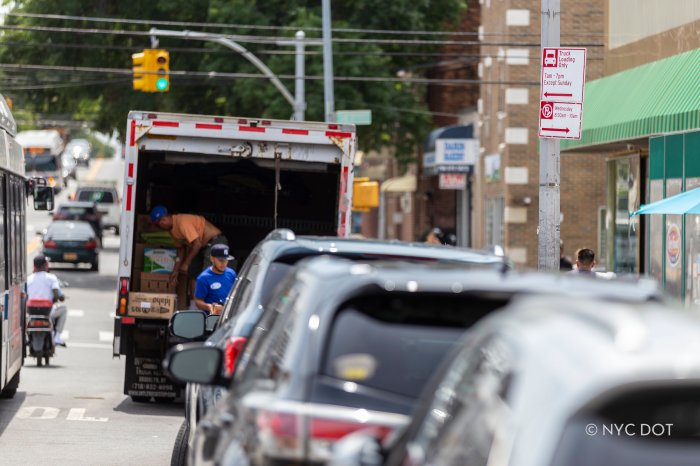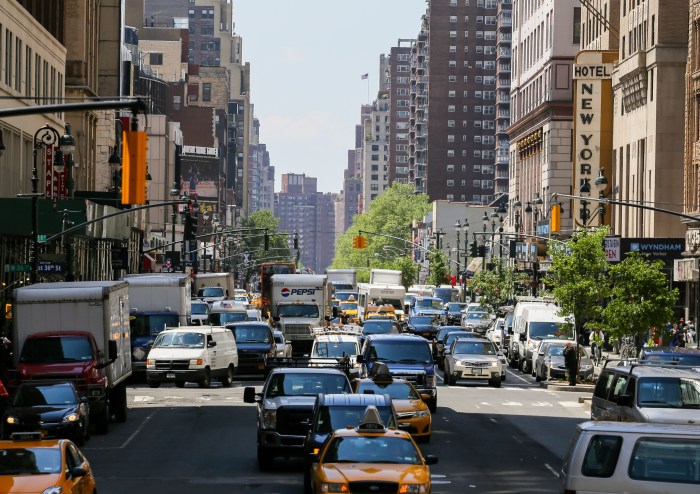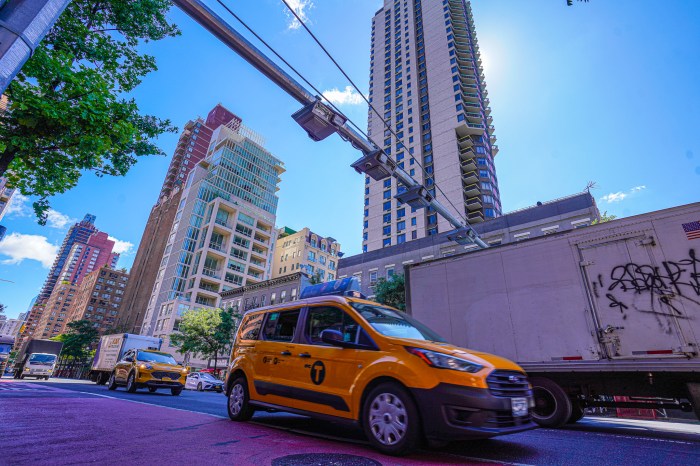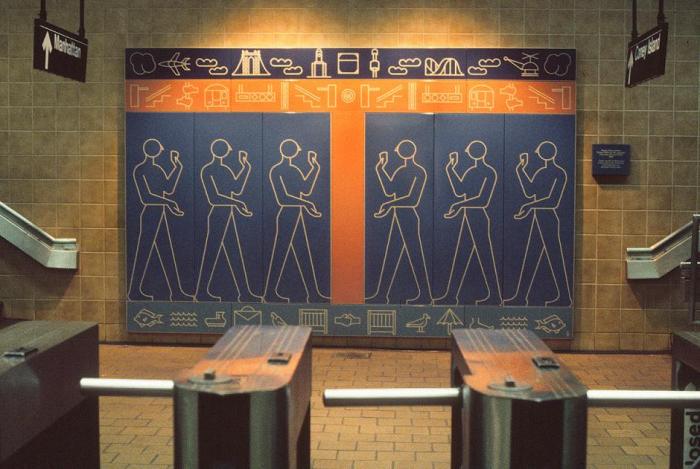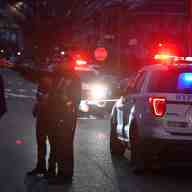The City Council put the brakes on the booming e-hail industry by approving a 12-month moratorium on new licenses for Uber, Lyft and other for-hire vehicles in New York City.
Wednesday’s vote came after intense negotiations and an aggressive ad campaign from Uber against the nation’s first cap on for-hire vehicle services. Uber argued the ban would hurt city residents, especially those in outer boroughs with few transit options.
“This is about supporting and uplifting drivers in New York City — all drivers,” City Council Speaker Corey Johnson said before the vote.
The legislation was prompted by concerns with the ever-slowing traffic speeds in the heart of Manhattan and a recent spate of six TLC driver suicides, which advocates linked to the financial troubles of the industry.
“The taxi industry has had caps on vehicles for 70 years, and it’s time for some balance,” said City Councilman Stephen Levin, who sponsored the bill mandating the 12-month pause on licenses, during a committee hearing earlier in the day. “If we continue to let drivers struggle to pay rent and we do not improve congestion, we are not doing our job as elected officials.”
But Uber and its supporters said ride-hail vehicles provide a vital service for people trying to get around the city in the face of subway delays, service interruptions and public transit limitations.
“The city’s 12-month pause on new vehicle licenses will threaten one of the few reliable transportation options while doing nothing to fix the subways or ease congestion,” said Uber spokeswoman Alix Anfang in a statement. “We take the Speaker at his word that the pause is not intended to reduce service for New Yorkers and we trust that he will hold the TLC accountable, ensuring that no New Yorker is left stranded.”
Anfang said Uber will “do whatever it takes to keep up with growing demand” and pledged to work with city and state lawmakers on comprehensive congestion pricing and other solutions.
The Council approved the cap on new licenses by a vote of 39 to 6. The remaining four bills were approved unanimously. They require new licenses for high volume transportation services with more than 10,000 trips a day and mandate that the Taxi and Limousine Commission set a minimum pay for drivers. They also waive license fees pertaining to wheelchair-accessible for-hire vehicles and lower fines on livery cars that pick up street hails in exclusionary zones.
The bill allows the TLC to lift the cap during the 12 month period if there is a need in a specific geographic area.
The legislative package was embraced by both drivers of ride-hail services like Uber as well as yellow taxi drivers. Dozens gathered outside the gates of City Hall on Wednesday to rally for the license cap.
“The big corporation is just too much for us and is making our life miserable, so we want to change that,” said Saberry Qudrat, 66, who has been driving a yellow taxi for 25 years and has experienced a severe shortage of fares he picks up in a shift since the advent of the ride-hailing companies. “The more cars on the street, the less money drivers make.”
City Councilman Eric Ulrich, who represents parts of southern Queens, voted against the cap, saying his constituents don’t have the “luxury of multiple subway lines beneath our feet and adequate bus service.”
He said traditional taxis are a declining industry with an outdated business model.
“It’s like the council deciding we are going to put a cap on Netflix subscriptions because we are worried about Blockbusters that are closing,” he said, referring to the almost-defunct video rental chain.
During an especially somber moment in the meeting, Johnson recounted each of the taxi drivers who had taken their own life. Several had told friends they were broke because of competition from for-hire vehicles like Uber.
“There has been a real human impact for us not figuring out how to deal with a regulatory framework that would allow the for-hire vehicle industry to exist and grow to meet demand, at the exact same time ensuring that all workers, all drivers in New York City are able to make ends meet,” Johnson said.
After the vote, Mayor Bill de Blasio released a statement saying he was looking forward to signing the bills into law.
“Our city is directly confronting a crisis that is driving working New Yorkers into poverty and our streets into gridlock,” he said. “More than 100,000 workers and their families will see an immediate benefit from this legislation. And this action will stop the influx of cars contributing to the congestion grinding our streets to a halt.”



